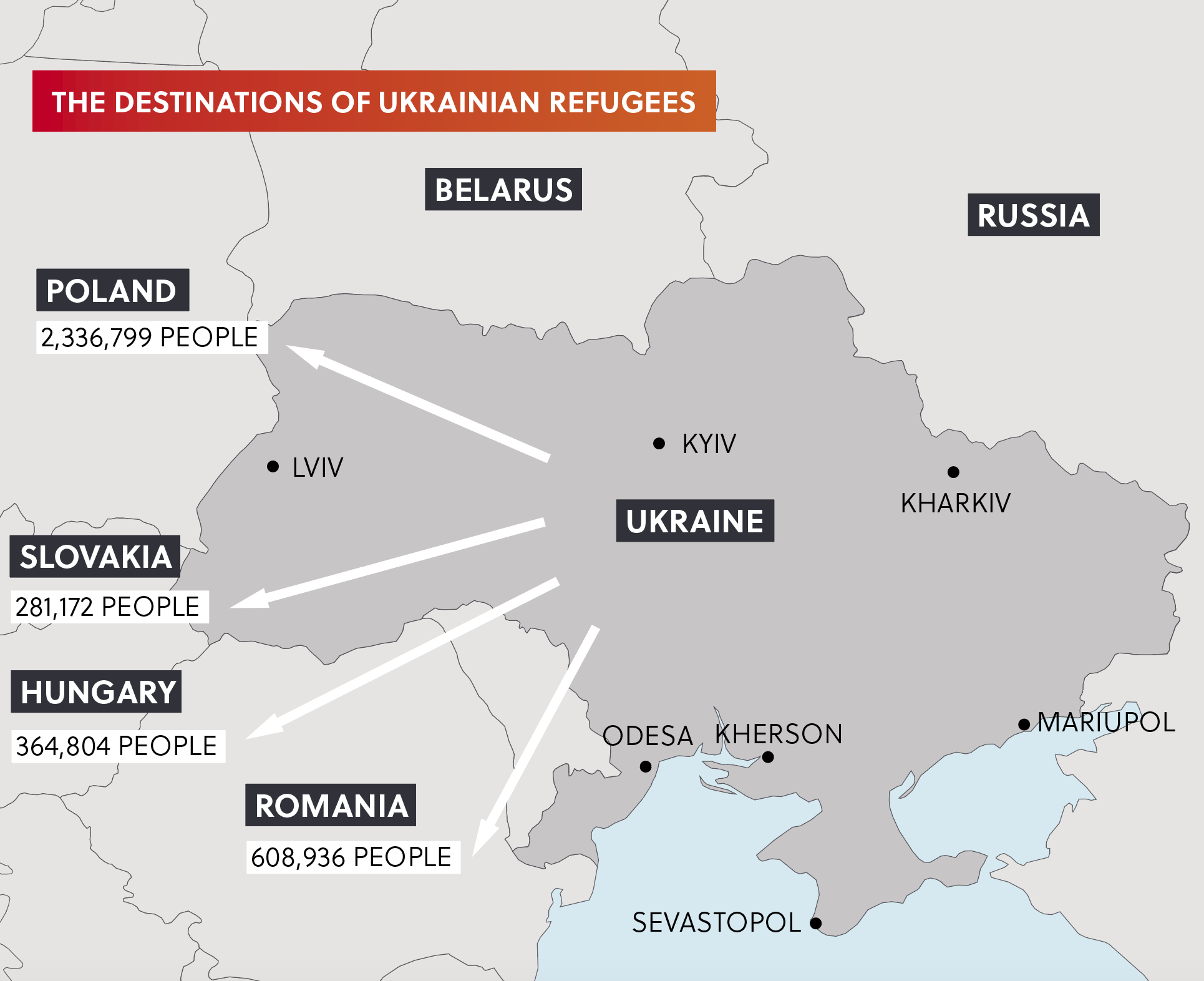The Ukrainian crisis: A recipe for civil unrest in Europe
The Russian invasion of Ukraine will have wide-ranging and sustained socio-economic and political consequences for Europe. Rising fuel prices caused by the conflict have already driven civil unrest in Europe, and Eastern European countries like Poland, Slovakia, Romania and Hungary face the added social and capacity-related challenges of assisting over three million Ukrainian refugees fleeing the war. With ongoing inflationary pressures driven by the global post-Covid-19 economic reopening, further unrest is likely as the EU and individual states struggle to adapt their budgets and refugee policies to deal with the ongoing crisis.
A SOCIO-ECONOMIC CRISIS PENDING?
Before the Russian invasion of Ukraine, Europe’s post-pandemic economic landscape was already suffering from increasing inflation rates. Protests over the rising cost of living, and governments’ decisions to withdraw some assistance subsidies, have proliferated; in France, for example, thousands of workers protested countrywide in January 2022 to call for improved wages. The Ukrainian invasion has exacerbated pressure on European citizens and businesses, with many companies forced to suspend operations or implement partial furlough schemes, although not all businesses will qualify for state subsidies. With many workers at risk of losing their jobs indefinitely, or being subject to wage cuts, dissatisfaction with their government’s perceived lack of ability to offset the economic impact of the Ukraine crisis could trigger further unrest.
Escalating fuel prices have also tiggered unrest. Following Russia’s invasion of Ukraine, fuel prices across the EU rose by 40 percent. Such increases have hit Europe’s farming, agricultural and fishing industries particularly hard, driving protests throughout February and March 2022. In Spain, truck drivers staged multiple protests and blockaded roads in the north-west of the country, while in Germany, truck drivers drove through Berlin in a convoy, causing major traffic disruptions. In Italy, truck drivers and fishing vessel crews staged protests over several days throughout the country, and in Cyprus and Greece, agricultural workers have demanded compensation from their respective governments over the impact of rising fuel costs on the availability of animal feed and fertiliser prices.
Governments across Europe have announced various measures to reduce the effects of the war’s financial fallout. Belgium, the Netherlands, Sweden, Germany and Poland have either announced tax cuts on fuel or introduced heating and power subsidies and rebates, while Italy rolled out a EUR 5.5 billion aid package to limit the climbing costs of living. But while governments – and even some companies – have made some efforts to cushion the economic impact, the knock-on effects of subsidies and immediate relief measures could also have longer-term adverse consequences. Such knock-on effects across various industries could sustain protests in the coming year.

WELCOME (FOR NOW): EASTERN EUROPE’S REFUGEE INFLUX
While eastern European countries have welcomed millions of Ukrainian refugees since the beginning of the conflict, the rapid influx of people has the potential to impact the socio-economic stability of these economies. Eastern European countries are already struggling to cope with the inflow of people. In Poland for example, relief agencies have accused the government of not having a long-term plan to assist and integrate refugees into Polish society. If the war continues and more refugees arrive, governments will come under increasing pressure to play a greater role in the support effort, adding to the strain on state resources. To share the burden, the EU triggered the Temporary Protection Directive (TPD) that permits Ukrainians to live, work and study in the EU for a period of up to three years. While the policy is an important step in integrating Ukrainians into host countries, the arrival of refugees into communities has the potential to create grievances amongst the local population if their quality of life deteriorates.
Frustration towards refugees can lead to deepening anti-immigrant sentiment, but for the time being it appears such attitudes exist on the fringes of society. The dominant narratives portrayed by most politicians is one of support and empathy. Hungarian President Viktor Orban, a strong proponent of anti-immigrant policies has called Hungary a “happy place” for Ukrainian refugees, while similar sentiments were echoed by Bulgarian and Slovakian politicians. Far-right groups that organised numerous anti-immigrant rallies following the 2015 refugee crisis have struggled to achieve the same momentum so far. In Poland, the far right Konfederacja (Confederation Party) has looked to capitalise on anti-Ukraine sentiment, yet there are few signs of them garnering support. These circumstances can quickly change though, and as economic assistance for refugees begins to eat away at state resources, the empathetic responses from politicians have the tendency to fade. A shift in the mainstream political narrative, combined with growing frustration amongst local populations toward Ukrainian refugees, could provide the foundation for far-right groups such as Konfederacja to regain traction.
